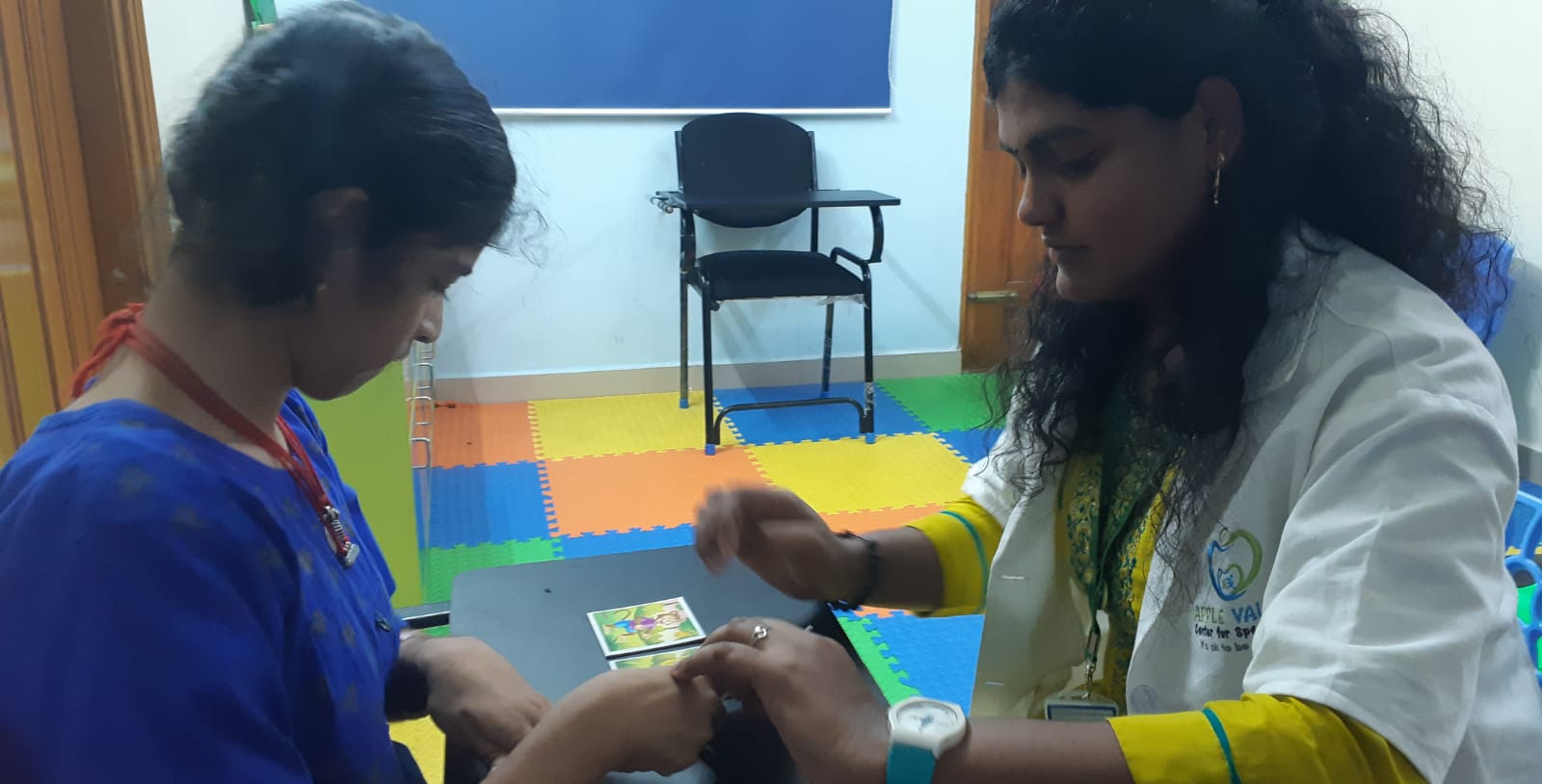Behavior Modification Therapy
Given that some children exhibit distinct thinking and behavioral patterns, it becomes crucial to implement developmental activities in an environment that feels natural and comfortable for them, such as their home or school, fostering a sense of empathy that encourages openness.



At Apple Valley Center, our counselors and psychologists collaborate closely with educators, caretakers, and parents to discern your child’s behavioral dynamics within a specific setting. Once we grasp the challenges faced by the child, we employ behavior modification techniques to systematically shape their behavior, utilizing case replicas to modify certain behaviors.
Our commitment extends to transferring these techniques to caretakers and parents who spend the majority of their time with the child. This ensures that the child can assess their behavior in a supportive environment, preparing them for real-world scenarios.
Here are the responsibilities of our behavior modification therapy professionals:
- Recognize the needs of the Children and the Parents: Understanding the unique requirements of both the children and their parents.
- Create a Tailor-Made Individual Behavior Plan with the Help of Psychological Insights: Collaborating with psychological insights to devise a personalized behavior plan.



- Plan Realistic Short-Term & Long-Term Goals and Discuss Them with the Parents: Setting achievable short-term and long-term goals and engaging in discussions with parents.
- Implement Behavior Modification: Applying behavior modification techniques to bring about positive changes in behavior.
- Explain and Train Parents to Apply Behavior Modification: Ensuring parents understand and can implement behavior modification techniques effectively.
- Monitor and Record Child’s Progress: Regularly tracking and documenting the child’s progress.
- Keep Parents Apprised About Daily Activities Both in Class and at Home: Maintaining open communication with parents about daily activities and progress both at school and home.
- Build a Network and Liaise with Other Concerned Professionals: Establishing connections and collaborating with other professionals involved in the child’s care.
By adhering to these responsibilities, our professionals contribute to creating a supportive and adaptive environment that facilitates positive behavioral changes in the child, ultimately preparing them for success in various real-world scenarios.


